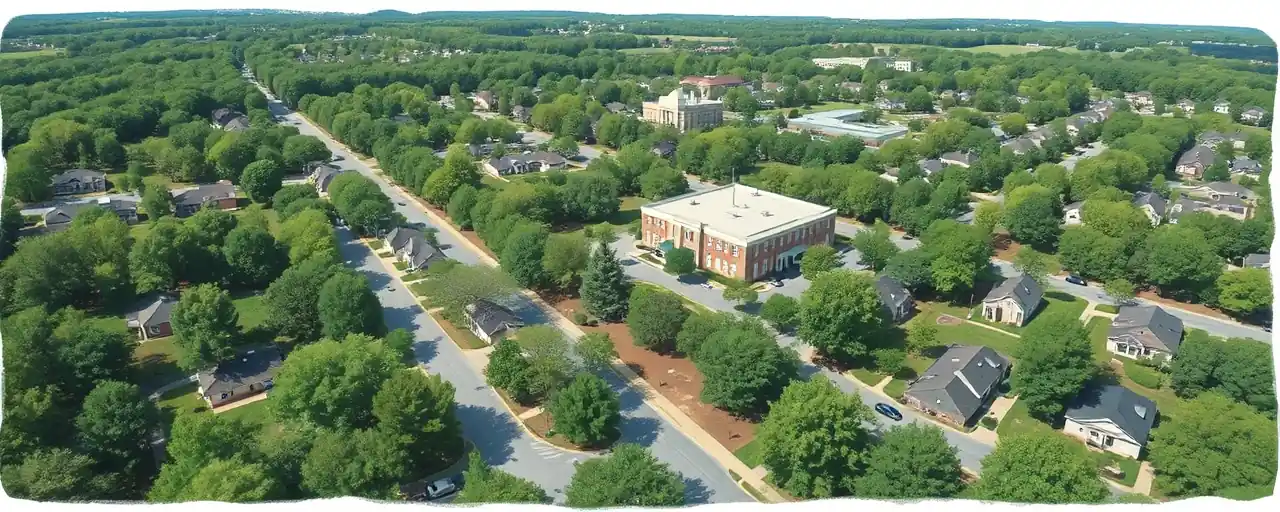A New Hub for Jobs in Metro Atlanta
A major player in building materials, CRH, is planting deeper roots in metro Atlanta with a new Finance & Accounting Shared Services Center in Roswell. The $1.7 million investment promises to create more than 300 jobs by 2029, offering a boost to Fulton County’s economy. The announcement, made by Georgia Governor Brian Kemp, highlights the state’s knack for drawing businesses with its blend of talent, infrastructure, and business-friendly policies.
The center will support CRH’s Americas Materials Solutions business, which is already headquartered in Atlanta. It’s a move that signals confidence in the region’s workforce and its ability to support complex financial operations for a company that operates in 28 countries. For locals, the prospect of high-quality jobs in finance and accounting is a tangible win, especially in a competitive job market.
Yet, the excitement comes with questions. CRH’s core business, producing materials like cement and asphalt, sits at the heart of an industry under scrutiny for its environmental footprint. As the company expands in Georgia, its growth raises broader concerns about balancing economic gains with sustainable practices, a tension that’s becoming harder to ignore.
Why Atlanta? Talent and Trends
Metro Atlanta’s appeal for CRH isn’t hard to pin down. The region boasts a deep pool of finance and tech talent, fueled by Georgia’s universities and a growing reputation as a hub for young professionals. Katie Kirkpatrick, head of the Metro Atlanta Chamber, pointed to the area’s diversity and global reach as key draws for companies like CRH. The new center, located at 1120 Sanctuary Parkway, is already hiring, with roles ranging from accountants to financial analysts.
The decision also reflects a broader shift in how companies choose locations for shared services centers. Remote and hybrid work, reshaped by the pandemic, has loosened the grip of big city centers. Firms now look to places like Roswell, where costs are lower and quality of life is high. This “Donut Effect” sees economic activity spreading to suburbs, easing urban congestion while bringing jobs to new areas. For Roswell, it’s a chance to shine as a business destination.
Still, the influx of jobs doesn’t tell the whole story. Shared services centers often rely on advanced technologies like AI and automation, which can streamline operations but may cap long-term job growth in routine roles. For Atlanta, the challenge is ensuring these jobs translate into lasting economic benefits for a diverse workforce.
Economic Wins and Environmental Costs
The economic ripple effects of CRH’s investment are undeniable. Fulton County Chairman Robb Pitts called it a testament to the area’s skilled workforce and innovation-driven ecosystem. Beyond direct hires, the center is likely to spark indirect job growth in construction, hospitality, and local businesses, much like Amazon’s service centers, which boosted median incomes in host counties by 2.2%. Roswell Mayor Kurt Wilson also touted the city’s family-friendly vibe, with top schools and safe neighborhoods, as a draw for workers and businesses alike.
But CRH’s industry faces headwinds on sustainability. Building materials account for 37% of global carbon emissions, with cement alone contributing 7%. While CRH is ranked among sector leaders for environmental, social, and governance performance, the sector as a whole lags in transparent reporting. Only a third of building products firms disclose revenue from sustainable solutions, even as demand for green materials grows. Companies like Saint-Gobain, with 73% of sales from sustainable products, set a high bar that CRH must strive to meet.
The push for greener practices isn’t just about optics. Firms with strong environmental metrics enjoy a 10-15% valuation premium, and certified green buildings command higher asset values. For CRH, integrating sustainable innovations, like low-emission materials or renewable energy, could align its Atlanta expansion with global trends while addressing local concerns about environmental justice, particularly for communities near production sites.
The Role of Incentives and Competition
Georgia’s ability to attract CRH didn’t happen by accident. The state’s robust incentive packages, including tax credits and workforce training programs, played a pivotal role. Southern states like Georgia and Tennessee have honed this strategy, investing in site readiness and skilled labor to lure high-impact projects. Elizabeth McLean from the Georgia Department of Economic Development noted the state’s universities and appeal to young talent as key advantages.
Yet, incentives are a double-edged sword. While they drive job creation, critics argue they can favor big players over small businesses or fail to deliver long-term benefits. High-profile flops, like the Dell facility in North Carolina, show the risks when projects don’t pan out. Georgia’s leaders are under pressure to ensure these deals prioritize measurable outcomes, like sustained job growth and community investment, over flashy announcements.
For CRH, the incentives likely tipped the scales, but the company’s global reach and Atlanta’s infrastructure were already strong pulls. The challenge now is ensuring the center delivers on its promise of 1,400 total jobs in Georgia, while navigating a competitive landscape where automation and outsourcing trends reshape finance and accounting roles.
Looking Ahead
CRH’s new center marks a win for metro Atlanta, cementing its status as a magnet for global businesses. The 300-plus jobs, combined with the region’s growing reputation as a finance and tech hub, paint a bright picture for workers and families. Yet, the expansion also underscores the delicate balance between economic growth and environmental responsibility, a tension CRH and its peers can’t ignore as scrutiny intensifies.
For Georgians, the real test will be whether these jobs create lasting opportunities and whether CRH can lead in sustainable practices that benefit both the economy and the planet. As hiring ramps up and the center takes shape, all eyes will be on Roswell to see if this investment lives up to its promise.
